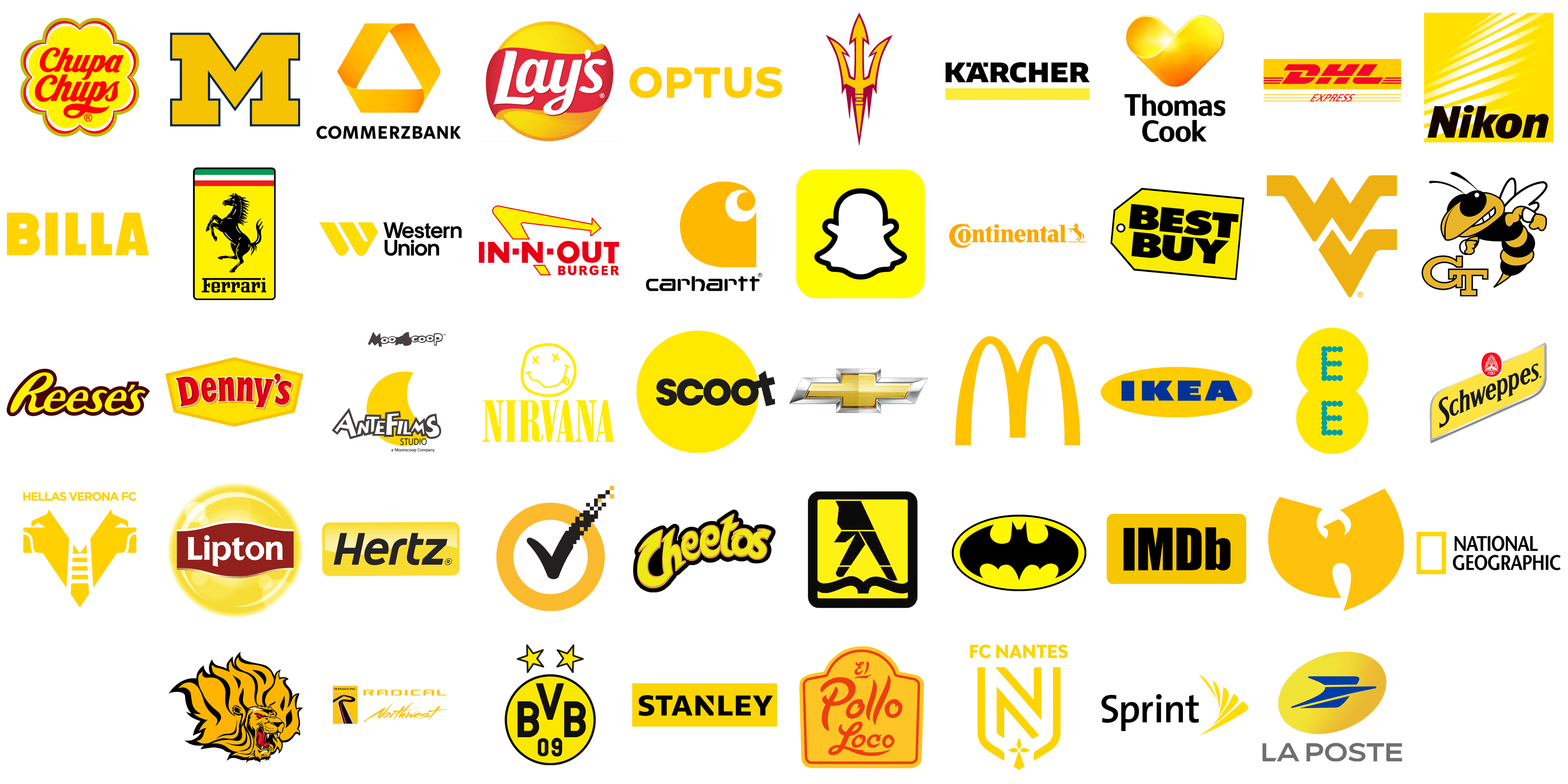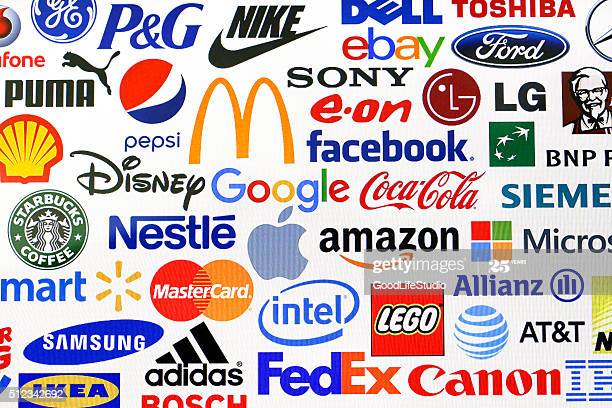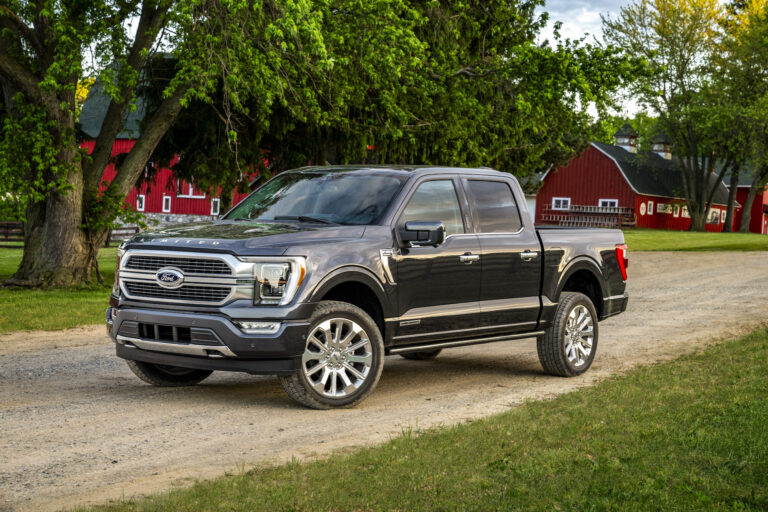Which Brand Is The Best Car Battery? A Comprehensive Guide
Which Brand Is The Best Car Battery? A Comprehensive Guide cars.truckstrend.com
The humble car battery, often overlooked until it fails, is the unsung hero that brings your vehicle to life. It powers everything from the starter motor to the complex array of electronics that modern cars rely on. But when the time comes to replace it, a common question arises: Which brand is the best car battery?
The answer, as with many things in the automotive world, isn’t a simple one-size-fits-all. The "best" car battery brand depends heavily on your specific vehicle, driving habits, local climate, and budget. This comprehensive guide will delve into the critical factors that define battery performance, explore the leading brands in the market, and provide you with the insights needed to make an informed decision, ensuring you choose the best power source for your ride.
Which Brand Is The Best Car Battery? A Comprehensive Guide
Understanding Car Batteries: Key Metrics and Types
Before we dive into specific brands, it’s crucial to understand the fundamental characteristics that differentiate car batteries. These metrics and types directly influence performance, longevity, and suitability for various applications.
Key Performance Metrics:
- Cold Cranking Amps (CCA): This is arguably the most critical rating for a car battery, especially in colder climates. CCA measures the number of amps a 12-volt battery can deliver at 0°F (-18°C) for 30 seconds while maintaining at least 7.2 volts. A higher CCA rating means the battery has more power to start your engine in freezing temperatures, where engine oil thickens, and chemical reactions within the battery slow down.
- Reserve Capacity (RC): RC indicates how long (in minutes) a fully charged battery can deliver 25 amps of current at 80°F (27°C) before its voltage drops below 10.5 volts. This metric is vital for powering essential accessories like lights, wipers, and the radio if your alternator fails or when the engine is off. A higher RC means more reserve power.
- Battery Group Size: This refers to the battery’s physical dimensions (length, width, height) and terminal configuration (top post, side post, etc.). Your vehicle manufacturer specifies the correct group size, and it’s imperative to match it for proper fit and connection.
- Amp-Hours (Ah): While more common for deep-cycle batteries, Ah measures the total amount of energy a battery can store and deliver over time.

Common Battery Types:
- Flooded Lead-Acid (Wet Cell): This is the most traditional and widely used car battery. It contains a liquid electrolyte (sulfuric acid and water) that covers lead plates.
- Pros: Generally the most affordable, widely available, and reliable for standard applications. Some are "maintainable" (have removable caps to add distilled water).
- Cons: Can spill, requires occasional maintenance (if not sealed), and is sensitive to vibration and extreme temperatures.

- Absorbent Glass Mat (AGM): A newer technology where the electrolyte is absorbed into fiberglass mats between the lead plates. This makes them spill-proof and more resistant to vibration.
- Pros: Excellent for modern vehicles with start-stop technology, high electrical demands, or premium sound systems. Superior cold-weather performance, faster charging, longer life cycle, and maintenance-free.
- Cons: More expensive than flooded batteries.

- Gel Cell Batteries: Similar to AGM, but the electrolyte is suspended in a gel. Less common for starting applications.
- Pros: Spill-proof, good for deep cycling.
- Cons: Not ideal for high cranking amps, can be damaged by overcharging, more expensive.
- Lithium-Ion (LiFePO4): An emerging technology in the automotive starting battery market, particularly for performance vehicles or those seeking significant weight reduction.
- Pros: Extremely lightweight, very high CCA, long cycle life, rapid charging.
- Cons: Very expensive, sensitive to extreme cold (though some models have built-in heaters), requires specific charging profiles.
Top Contender Brands: A Deep Dive into Which Brand Is The Best Car Battery
When considering which brand is the best car battery, several manufacturers consistently stand out for their quality, reliability, and innovation. Here’s a look at some of the market leaders:
-
Optima Batteries:
- Reputation: Renowned for their unique Spiralcell Technology, Optima batteries are known for extreme vibration resistance and high performance.
- Key Features: Available in RedTop (starting), YellowTop (deep cycle & starting, ideal for high-accessory vehicles), and BlueTop (marine/RV). All are AGM.
- Ideal For: Performance vehicles, off-roaders, vehicles with heavy accessory loads (audio systems, winches), and extreme conditions.
- Pros: Excellent power, long life, spill-proof, robust.
- Cons: Premium price point, specific fitment requirements for some models.
-
ACDelco:
- Reputation: The OEM supplier for General Motors vehicles, ACDelco offers a wide range of batteries known for reliable performance.
- Key Features: Offers various lines (Professional, Advantage, Gold) in flooded and AGM types. Good balance of performance and value.
- Ideal For: GM vehicles (naturally), and a solid choice for general replacement in many other makes.
- Pros: Dependable, good warranty, widely available.
- Cons: May not offer the extreme performance of specialized brands.
-
EverStart (Walmart):
- Reputation: Walmart’s private label battery, often manufactured by Johnson Controls (Clarios), Exide, or East Penn. Known for accessibility and affordability.
- Key Features: Available in standard flooded and AGM varieties (EverStart Maxx, Plus).
- Ideal For: Budget-conscious buyers, general replacement needs, and those seeking convenience.
- Pros: Excellent value for money, widespread availability, decent warranty.
- Cons: Performance can vary slightly depending on the actual manufacturer, not typically a "high-performance" choice.
-
DieHard (Advance Auto Parts/NAPA):
- Reputation: A long-standing and highly recognized name in car batteries, now primarily sold through Advance Auto Parts and NAPA Auto Parts.
- Key Features: Offers different tiers (e.g., DieHard Gold, Platinum AGM) to cater to various needs and budgets. Known for strong CCA ratings.
- Ideal For: Drivers seeking a reliable, established brand with good warranty support.
- Pros: Strong starting power, good longevity, reputable warranty.
- Cons: Pricing can be higher than budget options.
-
Interstate Batteries:
- Reputation: A major distributor with a vast network of dealers, known for quality and reliability. Often used by mechanics and professional installers.
- Key Features: Offers a comprehensive line of flooded, AGM, and EFB (Enhanced Flooded Battery) options.
- Ideal For: Those seeking a trusted brand with widespread support, particularly for standard vehicle applications.
- Pros: Excellent reputation for longevity and reliability, strong dealer network.
- Cons: Can be pricier than some generic options.
-
Odyssey (EnerSys):
- Reputation: A premium, high-performance battery brand, often considered a top-tier choice for demanding applications.
- Key Features: Pure lead AGM technology, offering extremely high CCA and long cycle life. Designed for extreme temperatures and deep cycling.
- Ideal For: High-performance cars, heavy-duty trucks, emergency vehicles, and anyone needing maximum reliability and power.
- Pros: Exceptional durability, power, and lifespan; excellent in extreme conditions.
- Cons: Significantly more expensive than most other brands.
-
Bosch:
- Reputation: A global leader in automotive components, Bosch offers high-quality batteries with a focus on European vehicle compatibility.
- Key Features: Known for reliable starting power and robust construction, often incorporating AGM technology.
- Ideal For: European cars, or anyone looking for a well-engineered, reliable battery.
- Pros: High quality, good performance, reliable.
- Cons: May be less common in some US retail chains.
-
Duralast (AutoZone):
- Reputation: AutoZone’s house brand, widely popular due to its extensive retail presence and competitive pricing.
- Key Features: Offers a range of batteries including standard flooded, Gold, and Platinum (AGM) lines. Strong warranties.
- Ideal For: General vehicle replacement, convenient purchase, good value.
- Pros: Readily available, good warranty, competitive pricing.
- Cons: Performance can be standard rather than exceptional for base models.
Factors to Consider When Choosing the Best Brand
Beyond brand name, making the best choice involves aligning the battery with your specific needs:
- Vehicle Type and Requirements: Does your car have start-stop technology? Does it have a lot of aftermarket electronics? These require AGM or EFB batteries. A standard sedan might do fine with a flooded battery.
- Climate: If you live in a very cold climate, prioritize a high CCA rating. In hot climates, look for batteries designed with heat resistance, as heat is a major battery killer.
- Driving Habits: Frequent short trips prevent a battery from fully recharging, potentially shortening its life. If this is your habit, consider a battery with good deep-cycle capabilities (like AGM) or use a trickle charger.
- Budget: While tempting to go for the cheapest option, investing a bit more in a higher-quality battery often pays off in longevity and reliability.
- Warranty: A longer warranty (e.g., 3-5 years) indicates the manufacturer’s confidence in their product. Understand the full replacement vs. pro-rated terms.
- Maintenance Needs: Do you prefer a completely sealed, maintenance-free battery (like AGM), or are you comfortable checking and topping off fluid levels in a flooded battery?
- Availability and Support: Consider where you can easily purchase the battery and, more importantly, where you can get warranty support if needed.
Tips for Maximizing Battery Life, Regardless of Brand
Even the best car battery brand won’t last if not cared for properly. Follow these tips to extend its lifespan:
- Regular Testing: Have your battery tested annually, especially before winter or summer, to check its charge and cranking power.
- Keep Terminals Clean: Corroded terminals impede current flow. Clean them with a wire brush and a battery terminal cleaner.
- Secure Mounting: Ensure the battery is securely fastened to prevent vibration damage.
- Avoid Short Trips: Frequent short drives that don’t allow the alternator to fully recharge the battery can shorten its life.
- Limit Accessory Use When Engine Off: Avoid using radios, lights, or charging devices when the engine isn’t running for extended periods.
- Consider a Trickle Charger: If your car sits for long periods, a smart trickle charger can maintain the battery’s charge.
- Check Alternator: A failing alternator can overcharge or undercharge your battery, shortening its life.
Challenges and Solutions
- Premature Failure: If your new battery fails quickly, it might be due to a faulty charging system (alternator), excessive parasitic draw, or a defective unit. Get both the battery and your vehicle’s electrical system checked.
- Incorrect Fit: Always verify the battery group size before purchasing. An ill-fitting battery can shift, causing damage or short circuits.
- Warranty Claims: Keep your receipt and warranty information handy. Understand the terms for replacement or pro-rated credit.
- Recycling Old Batteries: Car batteries contain hazardous materials. Always return your old battery to the retailer, a recycling center, or an auto parts store. They are legally required to accept it and often offer a core charge refund.
Price Table: Which Brand Is The Best Car Battery (Example Ranges)
Note: Prices are approximate and can vary significantly based on battery group size, CCA rating, type (flooded/AGM), retailer, and regional promotions. Always check current pricing.
| Brand | Type | CCA (Typical Range) | RC (Typical Range) | Warranty (Years) | Approx. Price Range (USD) | Key Features / Notes |
|---|---|---|---|---|---|---|
| EverStart | Flooded/AGM | 500-800 | 80-140 | 2-3 | $100 – $180 | Budget-friendly, widely available (Walmart) |
| Duralast | Flooded/AGM | 550-850 | 90-150 | 2-3 | $120 – $220 | AutoZone house brand, good warranty, wide selection |
| ACDelco | Flooded/AGM | 500-850 | 85-150 | 3-4 | $130 – $250 | OEM for GM, reliable, good value |
| Interstate | Flooded/AGM | 600-900 | 100-160 | 3-5 | $150 – $280 | Trusted by mechanics, wide dealer network |
| DieHard | Flooded/AGM | 650-1000 | 110-180 | 3-5 | $160 – $300 | Long-standing reputation, various tiers, strong power |
| Optima | AGM | 700-900 | 90-155 | 3-4 | $200 – $350+ | Spiralcell Tech, vibration resistant, performance |
| Odyssey | Pure Lead AGM | 750-1150+ | 120-200+ | 3-4 | $250 – $450+ | Extreme performance, long life, premium choice |
| Bosch | Flooded/AGM | 600-850 | 100-150 | 3-4 | $140 – $260 | Quality engineering, good for European vehicles |
Frequently Asked Questions (FAQ)
Q: How often should I replace my car battery?
A: Typically, a car battery lasts between 3 to 5 years. However, this can vary significantly based on climate, driving habits, and battery type. Regular testing can help you determine its health.
Q: Can I put an AGM battery in a car that came with a flooded battery?
A: Yes, in most cases, you can upgrade from a flooded battery to an AGM battery, provided it’s the correct group size. AGM batteries offer superior performance and longevity, especially for modern vehicles with higher electrical demands. However, if your car’s charging system is specifically tuned for flooded batteries, it might not fully optimize the AGM’s lifespan. Consult your vehicle’s manual or a mechanic.
Q: What’s the difference between CCA and CA?
A: CCA (Cold Cranking Amps) measures performance at 0°F (-18°C), while CA (Cranking Amps) measures performance at 32°F (0°C). CCA is generally a more critical indicator for reliable starting in most climates.
Q: How do I know if my battery is dying?
A: Common signs include slow engine cranking, dimming headlights when the engine is off, the "check engine" or battery light illuminating, and frequent jump-starts needed.
Q: Is a higher CCA always better?
A: Not necessarily. While higher CCA provides more starting power, you only need to meet or slightly exceed your vehicle manufacturer’s recommended CCA. Excessively high CCA might indicate a battery designed for larger engines than yours, and you might be paying for power you don’t need. Focus on matching your vehicle’s requirements.
Q: Can extreme temperatures affect battery life?
A: Absolutely. Both extreme cold and extreme heat are detrimental to battery life. Cold temperatures reduce a battery’s cranking power, while heat accelerates the chemical reactions within the battery, leading to faster degradation.
Q: Where can I recycle my old car battery?
A: Most auto parts stores (e.g., AutoZone, Advance Auto Parts, O’Reilly Auto Parts), battery retailers (e.g., Interstate), and recycling centers will accept old car batteries for recycling. Many places even offer a core charge refund when you bring in your old battery upon purchasing a new one.
Conclusion
Determining which brand is the best car battery is a personal quest that culminates in matching the right product to your unique circumstances. While brands like Optima and Odyssey lead the charge in high-performance AGM technology, and DieHard and Interstate maintain a strong reputation for reliability, more accessible options like EverStart and Duralast offer excellent value for standard applications.
The ultimate "best" battery is one that fits your vehicle perfectly, meets its power demands, performs reliably in your climate, aligns with your budget, and is backed by a solid warranty. By understanding the key metrics, exploring the top brands, and considering your individual needs, you can confidently choose a car battery that provides dependable starts and powers your journey for years to come. Don’t wait for a dead battery to think about replacement – be proactive, informed, and power your drive with confidence.





